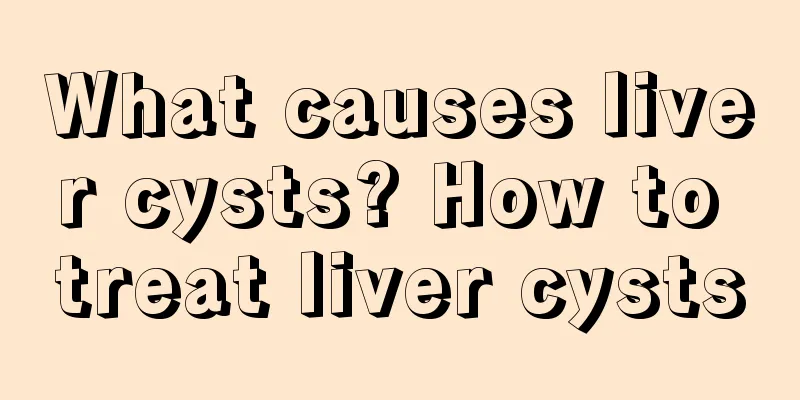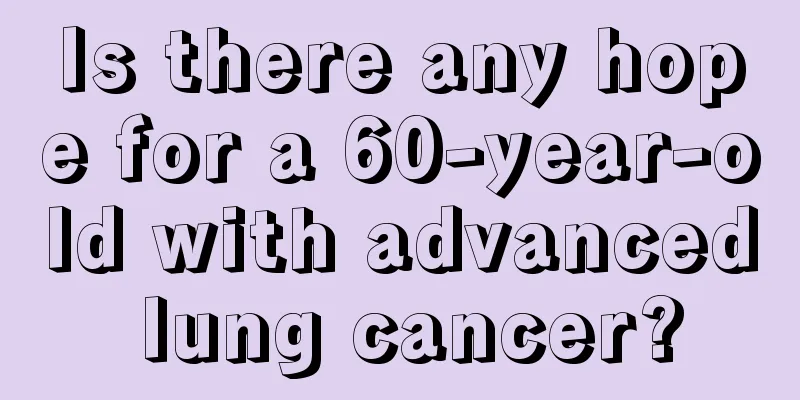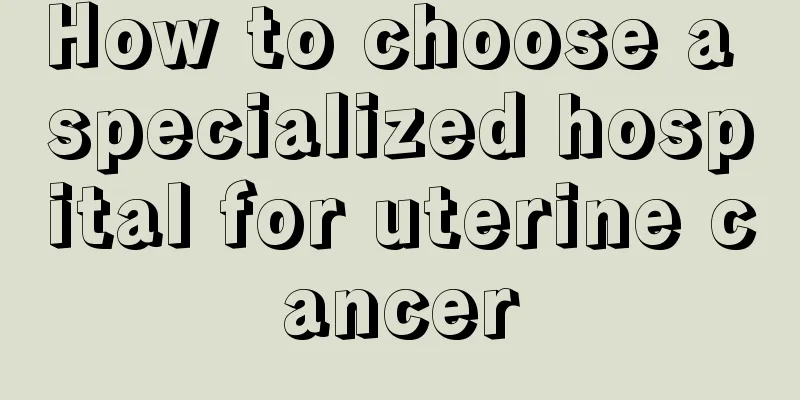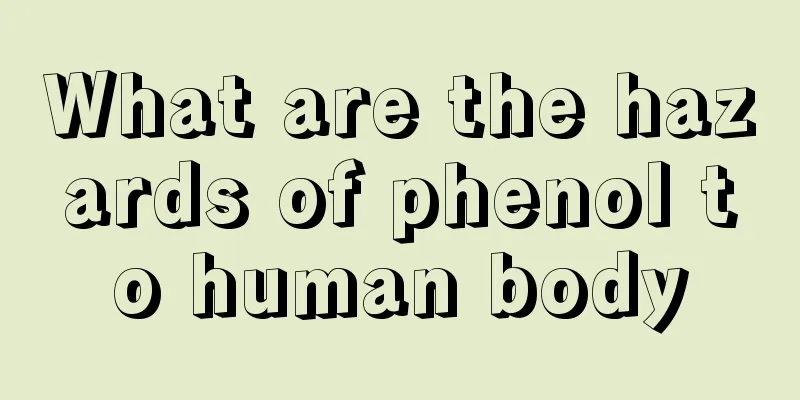What causes liver cysts? How to treat liver cysts

|
Liver cyst refers to a benign tumor that grows on the liver. It is relatively common and multiple in life. According to clinical studies, congenital liver cysts are relatively common and have almost no symptoms. This disease has age and regional characteristics. It is generally more common in middle-aged women and is more common in the south of my country. Let us now take a look at the detailed introduction about liver cysts. Liver cysts will neither affect liver function nor develop into liver cancer, so this type of cyst usually does not need to be treated, and only regular check-ups are required. But if it grows really large and makes the patient feel uncomfortable, it can be treated. There is no need for surgery during treatment. Under the guidance of ultrasound, the doctor can insert a thin needle into the cyst, draw out the fluid in the cyst with the thin needle, and then inject pure alcohol to prevent the cyst from growing again. If the cyst grows very large and the patient feels a lot of pain, surgical treatment can be considered to remove the cyst together with the cyst membrane to relieve the patient's pain. For isolated hepatic cysts, unless complications such as cyst rupture, cyst pedicle torsion or intracystic hemorrhage occur, emergency surgery should be performed. Otherwise, elective surgery should be scheduled based on the size and location of the cyst and the patient's general condition and subjective symptoms. Asymptomatic solitary liver cysts occasionally discovered during physical examinations can be temporarily treated conservatively and regularly observed using ultrasound examinations, and one needs to be vigilant against the occurrence of malignant transformation. It is best to perform surgical treatment for large liver cysts with symptoms, because conservative treatments such as puncture and fluid extraction are generally prone to recurrence and may bring bacterial contamination. Polycystic liver disease should usually be treated non-surgically. Since the lesions involve the entire liver, the disease cannot be cured unless a liver transplant is performed. However, once polycystic liver disease compresses the chest and abdomen due to liver enlargement and affects breathing and circulation, surgery should be considered to relieve pressure. The following surgical methods can be used according to specific conditions: 1. Liver resection; 2. Cyst excision; 3. Cyst fenestration or subtotal cyst resection; 4. Internal drainage of the cyst; 5. Cyst puncture, fluid extraction and sclerotherapy. Surgery for polycystic liver disease: Unless the lesions are confined to one lobe of the liver and are accompanied by symptoms, or there is suspicion of malignancy, surgical treatment is generally not recommended. When individual cysts in polycystic liver disease are found to be growing rapidly, compressing adjacent organs, and seriously affecting the patient's daily life or cardiopulmonary function, repeated punctures and fluid extractions can be performed on the larger cysts. If the patient is in good general condition and has normal liver function, a fenestration surgery can be performed to relieve pressure, alleviate symptoms, and promote liver cell regeneration. Those who have the conditions can undergo liver transplantation to completely cure the disease. Treatment of polycystic liver disease combined with polycystic kidney disease: The treatment of polycystic liver disease refers to the above plan. When polycystic kidney disease has no symptoms, kidney function can be observed and checked regularly. If symptoms occur (such as low back pain, hematuria, hypertension, renal failure, etc.), surgical treatment is required, including puncture or incision of the cyst to reduce cyst pressure, which can sometimes delay the progression of the disease and renal failure. Dialysis therapy can be performed if necessary. A radical cure requires a kidney transplant. |
<<: What causes stomach and back pain? Treatment for stomachache and backache
>>: What are the symptoms of idiopathic pulmonary fibrosis?
Recommend
What are the dietary taboos for lung cancer? Lung cancer patients should pay attention to 4 dietary taboos
Human life is very fragile. Sometimes, simply bec...
What does spring sleepiness mean
Spring is here, and many people will easily feel ...
What causes tinnitus and deafness?
Friends who experience tinnitus and deafness must...
Health education during the chemotherapy stage of breast cancer
Breast cancer patients who need chemotherapy shou...
How about washing your face with cold water every day
It should be noted that the weather is very cold ...
Drinking white wine will cause diarrhea and be extremely painful. Be careful of inflammation
Many men like to drink, especially people in the ...
Shelf life of homemade fruit enzyme
Fruit yeast has the effects of beauty and weight ...
Why is it difficult to treat fibroids
Why is it difficult to treat fibroids? In life, t...
Experts explain specific measures to prevent colon cancer
With the change of people's eating habits, co...
How much does it cost to check for nasopharyngeal carcinoma? How to treat late-stage nasopharyngeal carcinoma?
How much does it cost to check for nasopharyngeal...
Can ginger make hair grow thicker?
In fact, ginger has a certain hair growth effect,...
What are the treatments for chondroma
Chondroma is a relatively common benign bone tumo...
Patients should find ways to prevent liver cancer in their daily lives
Due to bad living habits, many people have develo...
What are the benefits of soaking your feet in ginger and white wine?
Almost everyone should know the benefits of ginge...
How to tell if you have tongue cancer
You can determine whether you have tongue cancer ...









